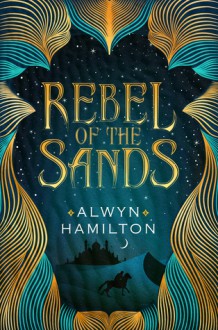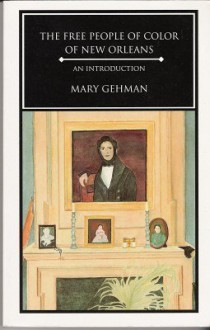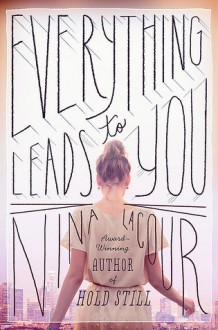
Spoiler Rating, Overall: Low-Moderate
Spoiler Rating, Last Three Points: High
Best Ashers,
Unfortunately, Rebel of the Sands (which smooshes together the Old American West and an ambiguously-religioned Middle East) wasn’t the engrossing read I’d hoped for. I actually found it fairly dull, and riddled with silly plot points and shallow character development—but it had a spark in both its main characters and its basic concept that kept me reading, so three cheers for that.
I’ll try to minimize the spoilers throughout most of this critique, but be warned: there’ll be spoilers galore in the last three points in my Criticism section (“Pacing,” “Specific Plot Points” and “Amani-Related Things“). I’ll put another spoiler warning before I dive into them, don’t worry.

Mortals rule the desert nation of Miraji, but mythical beasts still roam the wild and remote areas, and rumor has it that somewhere, djinn still perform their magic. For humans, it’s an unforgiving place, especially if you’re poor, orphaned, or female.
Amani Al’Hiza is all three. She’s a gifted gunslinger with perfect aim, but she can’t shoot her way out of Dustwalk, the back-country town where she’s destined to wind up wed or dead.
Then she meets Jin, a rakish foreigner, in a shooting contest, and sees him as the perfect escape route. But though she’s spent years dreaming of leaving Dustwalk, she never imagined she’d gallop away on a mythical horse—or that it would take a foreign fugitive to show her the heart of the desert she thought she knew.
Rebel of the Sands reveals what happens when a dream deferred explodes—in the fires of rebellion, the smolder of romantic passion, and the all-consuming inferno of a girl finally, at long last, embracing her power.
I wish I had a map to show you. How on earth does this book not have a map?

Amani — a young Mirajin sharpshooter who’s all grit and sly commentary. Born and raised in Nowheretown, Death Desert, she has a desert kid’s outlook on life: (a) the weak die, and (b) you gotta look out for yourself.
Jin — a mysterious young man from the east, who takes pity on Amani and helps her begin her journey. He’s being hunted by the Mirajin Sultan’s army for an unspecified offense. (Possibly “unlawful hotness.”)
Prince Ahmed — the rebel prince, and rightful heir to his father’s throne. He has dreams of gender equality and racial equality and peaceful democracy (I guess?), and is scraping together a happy band of (mostly teenage) rebels to overthrow the Sultan and make it happen.
Commander Naguib — a young man in the Sultan’s army, whose primary goals in life are sneering the perfect sneer and spitting in Prince Ahmed’s face (preferably at the same time).

The Voice
The story’s narrated from Amani’s first-person perspective, and she starts out with a seriously strong narrative voice. Check this out:

Delightful as Amani’s voice is in the beginning, I got a little tired of it after a couple chapters, so I was relieved when the Old American West accent eased up without losing its vividness:

Sure, I would’ve preferred a perfectly consistent voice throughout, but I’ll applaud the book’s attempt at a strong voice nonetheless.
Amani and Jin
It’s not the most compelling romance I’ve ever read, but I did love the combination of Amani’s fierce “it’s me or the world, and I’m choosing me” attitude and Jin’s calmer “try not to do anything rash, but when you inevitably do, I’ll be there to help you out” perspective.
The Immortal Desert Horses
You won’t be surprised to hear that I loved the immortal desert horses—their creation myth, the process required to capture them, their abilities, all of it.
This is, um, a remarkably short praise section for a book I’m ultimately giving two stars.

I’d like to not ramble for hours, so let me just cover the most significant criticisms.
Cultural Blending
I’m not really comfortable with how the book blended a vaguely Middle Eastern culture with Old American West culture, for a few reasons:
- The book seemed to only use Middle Eastern-ish elements that (a) offered a dash of “exotic flavor” (some words and names, the mythology, etc.) or (b) portrayed Middle Eastern-ish culture in a terrible way (such as the horrifying misogyny, which leads towns to stone girls and women to death for any perceived sexual impurity). As far as I saw, the book doesn’t offer any other type of Middle Eastern-ish elements.
- On the other hand, the book’s Old American West elements were mostly there for the cool/badass factor: gunslinging, action scenes on speeding trains, run-down saloons, etc.
- No in-world explanation was given for how Middle Eastern-ish culture blended with Old American West culture, so I’m left to assume there is no in-world logic for it. The book needed a unique cultural blend to be cool and marketable, so it just chose these two particular cultures because, uh, they share a deserty climate, I guess?
Cultural blending can be really neat, but to do it well (and sensitively) requires a lot of care and world-building. This book, in my opinion, failed both the “do it well” and “do it sensitively” parts.
World-Building
And no, the world-building isn’t great either, as I immediately suspected upon seeing the heroine’s surname: Al’Hiza.
I’m not an Arabic speaker, but I know the apostrophe is the English notation of a specific letter—hamza, the glottal stop—and it has zero reason to be in Amani’s surname. The name should be spelled as either Al-Hiza or Al Hiza.
If no one bothered to research how to correctly spell the heroine’s own last name, it seemed likely that little/no research was done for the world-building, period. And yeah, my suspicion seemed justified. We have almost no grasp at all on Amani’s culture except that:
- some people pray at regular intervals throughout the day,
- women are treated like property/shit,
- racism is alive and well,
- they’re ruled by a tyrannical sultan.
Not exactly the elaborate world-building I’d have hoped for.
Amani’s Modern Attitude and Culturelessness
Now, I love a strong feminist heroine, but Amani’s particular expression of feminism felt out of place in her setting—like a 21st century teen punk rock feminist who time-traveled back several centuries and was dropped into a deeply misogynistic culture.
Her culture values a woman’s virginity, silence, and obedience over anything else she is capable of, and Amani consistently responds to this by holding up both middle fingers, shouting obscenities at the top of her lungs, then proceeding to do whatever the hell she wants.
I saw zero indication that Amani was connected to her own culture at all, which was really disappointing. Well-written characters should feel like products of their own societies and times, not like they were ripped out of a completely different world and plopped down into the story, like Amani was.
The Pacing
Good lord, the pacing was slow.
But first: spoiler warning! I won’t give major spoilers for the plot in this section, but if you don’t want to hear anything at all about the plot, skip the rest of this review and go straight down to the “In Closing” section.
VAGUE SPOILERS, AVERT THINE EYES.
Ready? Good.
Amani’s primary goal is to get the hell out of her hometown, Dustwalk. She succeeds about a quarter of the way into the book, and after that, she has no major goals.
Sure, she dreams of going to the capital city and living with her aunt (whom she’s never met or corresponded with), but she easily ditches that idea when she realizes Jin’s too hot to say goodbye to. And sure, she has a few (sometimes interesting) short-term goals, but for the most part she’s just . . . traveling. Taking life and its individual challenges as they come.
Jin, meanwhile, has a Super Secret Mission that he won’t tell Amani about. His secrecy and the mere fact that he’s trying to accomplish Unknown Things is a stark contrast to Amani’s goalless traveling. (Sound familiar?)
She doesn’t find out about the Super Secret Mission until a hundred pages before the end of the book—and then she doesn’t get actively involved in the Mission until sixty pages before the book ends. Sixty.
Specific Plot Points
SPOILER WARNING, TONS OF SIGNIFICANT SPOILERS AHEAD
This book had a lot of dumb plot points. For the sake of space and time, I’ll give you only two.
1. The Immortal Desert Horse
While she’s plotting her escape from Dustwalk, Amani captures an immortal desert horse that can travel significantly faster than a mortal horse. So does she ride it all the way to the big city (covering the distance in days instead of weeks), then sell it in the city for an exorbitant amount of money, and use that money to set herself up in her new home?
No. Of course not.
She rides it to the nearest little town with a train station, where she sells the horse for half what it’s worth, and buys a train ticket to the capital city. The train ticket is so expensive, by the way, that it almost bankrupts her.
Why did she make such a stupid decision?
The answer (oh god when will I get a chance to stop complaining about this) is because the story wouldn’t have worked if she’d ridden her magical horse straight to the capital. So the book made Amani dumb for the sake of months of boring desert travel and the opportunity for Amani to join Prince Ahmed’s rebellion. Great.
2. The Rebellion’s Plans
First, some background. Decades ago, when the current Sultan of Miraji was still just a prince, he turned to the vaguely French-ish kingdom of Galla for help overthrowing his father and placing himself on the throne. Galla agreed, so long as they could maintain a military presence in Miraji, and the new Sultan became their primary weapons supplier.
In the present, the Sultan wants to kick the Gallan military out of Miraji—but he also wants to avoid starting a war. So he’s started using his secret superweapon (that can burn whole cities to ash) against Gallan military garrisons, and blaming the Rebel Prince Ahmed for the destruction. The Sultan hopes to just . . . kill all the Gallan soldiers in his country, and then cross his fingers that the Gallan king doesn’t send more to replace them, I guess?
This is ridiculously dumb.
The rebels also want to kick the Gallan military out of Miraji, but they fear that the Sultan’s plan—which entails blowing up some Mirajin towns that are hosting Gallan soldiers—will have too high a civilian death toll.
So they decide to spark a war between Galla and Miraji, because a war would distract the Sultan and make it easier to kill him, and would also reduce the number of Mirajin casualties.
. . .
I repeat: in order to reduce Mirajin casualties, they instigate a war.
I repeat: because the Sultan will be easier to assassinate if he’s distracted by a war.
Sure, everyone knows that wars don’t actually kill people, and also wartime is when security around a country’s ruler is the most lax and assassins are most likely to succeed.
Sigh.
Amani-Related Things
I’ll just mention two things here, too.
1. Devotion to the Rebellion
Amani (eventually) arrives in the rebellion’s secret headquarters, meets Prince Ahmed, and asks him about his rebellion. He replies (in essence), “I’m all about gender equality and racial equality and democracy and justice.”
The chapter (and his very brief explanation of his cause) concludes:

And thus, Amani becomes a follower of the rebellion, I guess? Is that what “the harder it was not to believe him” means?
I ask this because she seems to be (tepidly) converted without any follow-up questions for him. Without any discussion of how he—and his tiny group of rebels, most of whom seem to be teenagers—intends to take down both the Gallan occupiers and the Sultan himself. Without any snorting at the prince’s naive idealism. Without any skepticism that the prince can in fact bring equality and democracy and justice to what is, by all accounts, a terribly misogynistic and racist culture traditionally ruled by a tyrant.
This lack of critical thinking on her part seems really weird.
Amani then spends some time (days?) floating around the camp and casually picking up tidbits of info about the prince and the rebels, but she never shows a real interest in the rebellion. So I’m surprised when Jin asks her if she wants to officially join the rebellion, and she thinks:

So, uh, she feels a powerful need to be part of the rebellion? Since when? What drives it? Is it the misogyny/gender-equality stuff? Is it Jin? Or is it merely (as she did briefly mention earlier on) that it’s kind of cool knowing that she’s watching history being made?
The reader should clearly understand the protagonist’s reasons for shouldering the responsibility of their goal/mission—and this book seems to have forgotten that very important aspect of storytelling.
2. Amani’s Unrealistic Internal Conflict
This is the one that killed me.
Amani is a total badass, until the rebels tell her she’s a Demdji—the offspring of a human woman and an immortal Djinni father—and they hope to use her magic powers for the cause. Alas, she doesn’t know what those powers are, and even a week under the guidance of other Demdji doesn’t reveal what they could be.
So does she shrug and get back to practicing with her guns, because she already knows she’s got the guts and cunning and skill to be of use to the rebellion? Does she remind herself that she’s the Blue-Eyed Bandit, the best gunslinger in the desert, and an asset to any team looking for trouble?
No. She mopes about how she’s the only Demdji in the world without magic powers, and therefore she’s useless and worthless.
Who is this Amani and what did you do with the other one? I want the other one back.
Fortunately, Jin (who, by the way, is Prince Ahmed’s brother) gets as sick of her shit as I do, and tells it to her straight.

God bless you, Jin.
This could’ve been a genuinely interesting internal conflict for Amani (who otherwise doesn’t have much internal or external conflict going on), if it didn’t come so completely out of the blue—if, for example, she’d been struggling all along with self-esteem issues or concern about her self-sufficiency or her ability to contribute to a team.
But nope. She spent the entire book as a 100% capable and confident badass, until she abruptly decides she’s worthless. Sorry, but realistic internal conflict needs a better set-up than that.

As far as Middle-Eastern-ish YA fantasy novels go, at least this one didn’t piss me off as much as The Wrath and the Dawn. So that’s good.
But if you’re looking for a vaguely Middle-Eastern-ish fantasy with magic and war and a sexy king, read The Blue Sword.
If you’re looking for a more intense political fantasy that blends Middle Eastern and Western cultures (but on opposing sides of a war, not quite in a unified culture), check out The Lions of Al-Rassan.
If you’d like a spunky narrator whose spunkiness fits more naturally in their (non-modern) culture, maybe try The Thief.
That’s not to say you shouldn’t read Rebel of the Sands; maybe you’d like it better than I did. I just wish I’d spent those hours reading something better.
Hugs,
Liam


 Log in with Facebook
Log in with Facebook 




























